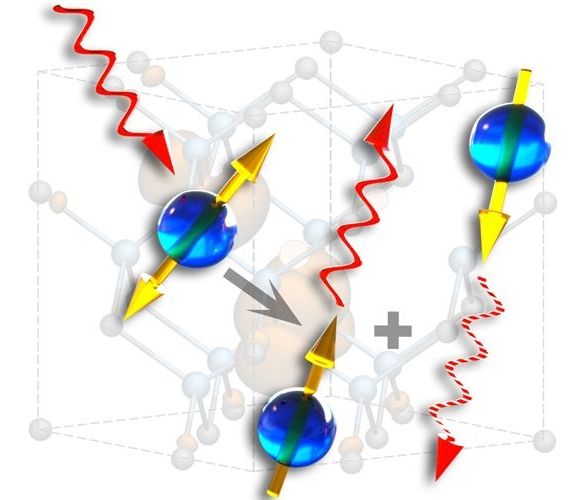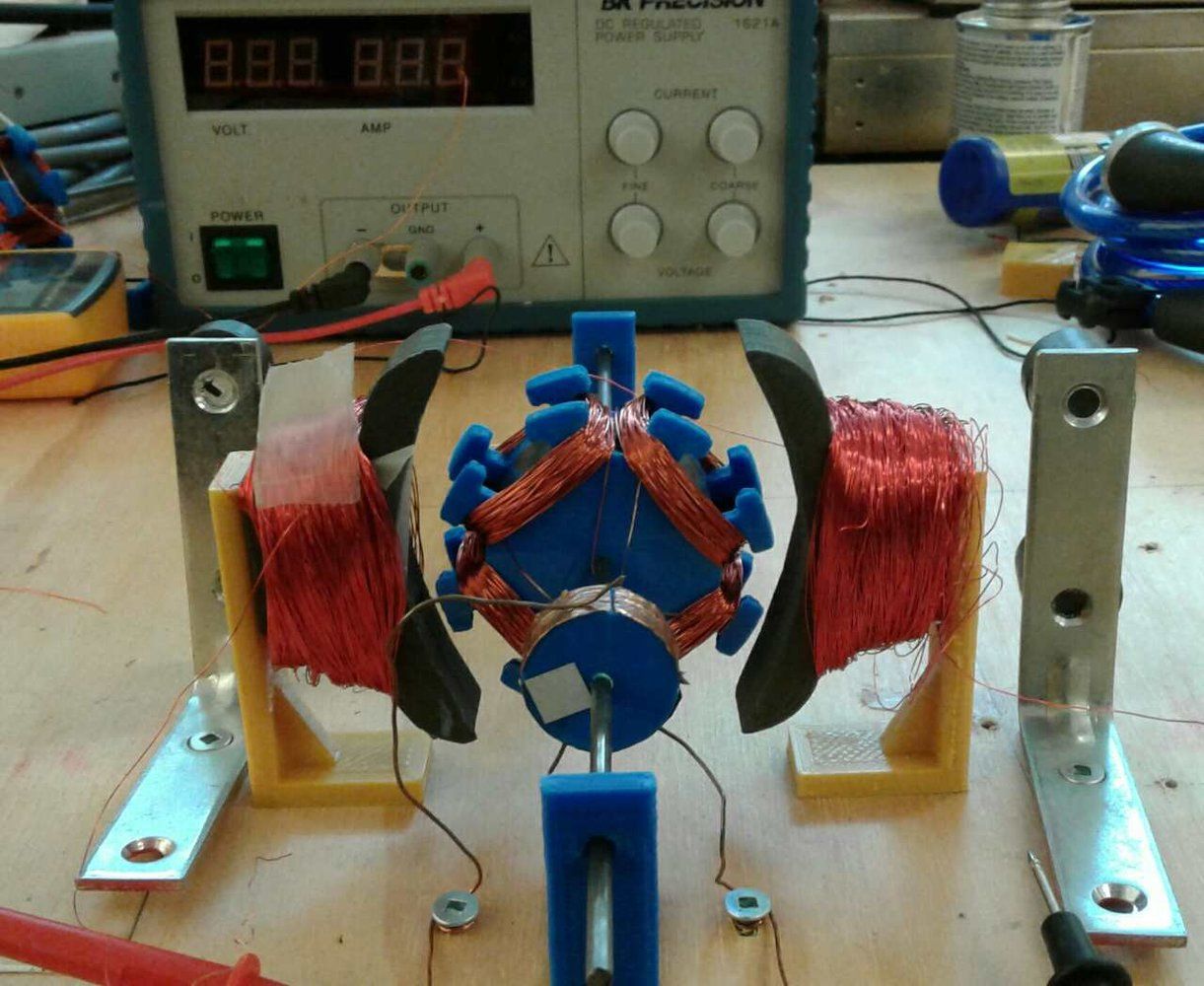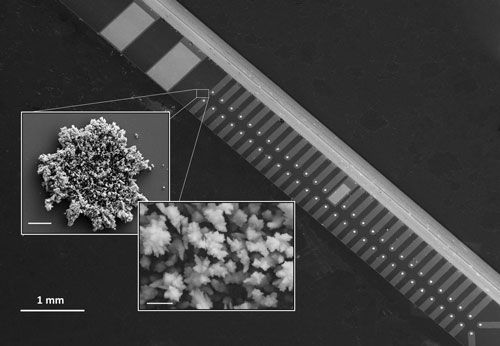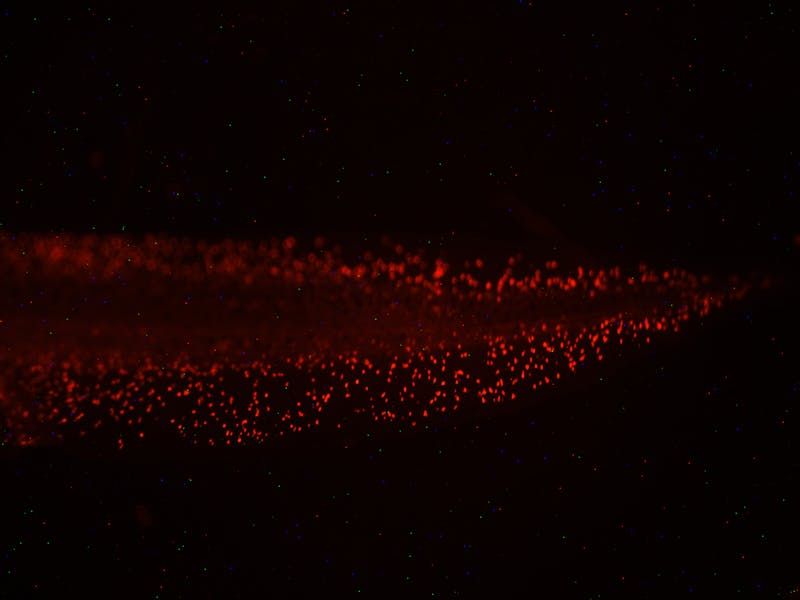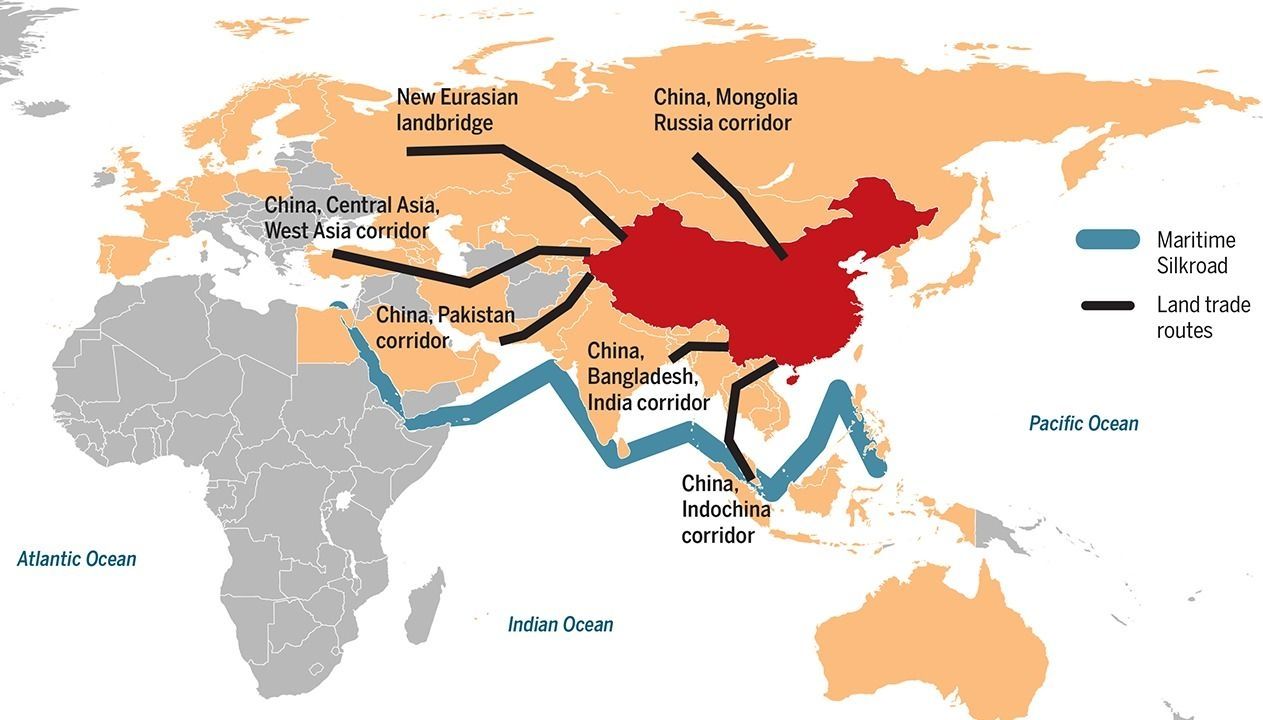An international team led by the University of Chicago’s Institute for Molecular Engineering has discovered how to manipulate a weird quantum interface between light and matter in silicon carbide along wavelengths used in telecommunications.
The work advances the possibility of applying quantum mechanical principles to existing optical fiber networks for secure communications and geographically distributed quantum computation. Prof. David Awschalom and his 13 co-authors announced their discovery in the June 23 issue of Physical Review X.
“Silicon carbide is currently used to build a wide variety of classical electronic devices today,” said Awschalom, the Liew Family Professor in Molecular Engineering at UChicago and a senior scientist at Argonne National Laboratory. “All of the processing protocols are in place to fabricate small quantum devices out of this material. These results offer a pathway for bringing quantum physics into the technological world.”
